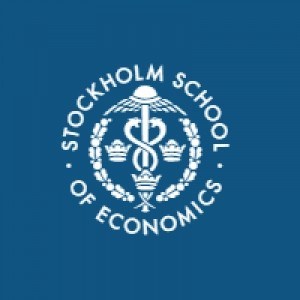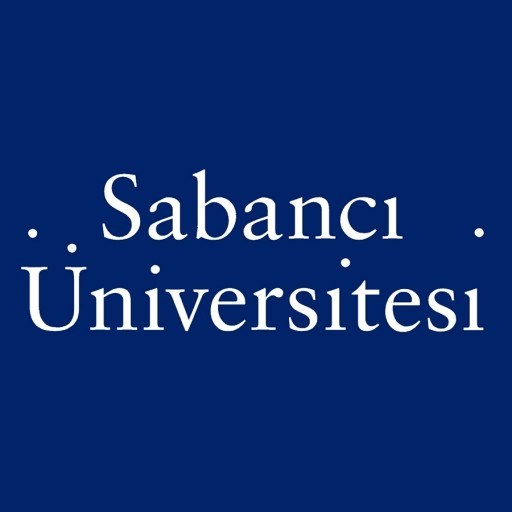Photos of university / #stockholmschoolofeconomics
The Bachelor in Business & Economics at Stockholm School of Economics offers students a comprehensive foundation in the core principles of business management, economics, and finance. Designed to equip future leaders with the analytical skills and practical knowledge necessary to navigate the complexities of the global marketplace, this programme combines rigorous academic coursework with real-world applications. Throughout the programme, students engage with a diverse curriculum that covers areas such as microeconomics, macroeconomics, corporate finance, marketing, organizational behavior, and quantitative methods. The programme emphasizes critical thinking, problem-solving abilities, and effective communication, preparing graduates to thrive in various sectors including consulting, banking, entrepreneurship, and multinational corporations.
Students benefit from SSE’s renowned faculty, innovative teaching methods, and close ties to industry, providing ample opportunities for internships and networking. The programme also fosters an entrepreneurial mindset and global perspective, encouraging students to think creatively and adapt to emerging economic trends. In addition to compulsory courses, students can customize their education through elective modules and participate in international exchange programmes to gain exposure to different cultural and business environments.
The Bachelor in Business & Economics at SSE is designed for ambitious individuals eager to develop a deep understanding of economic theories and their practical implications. Graduates emerge well-prepared for postgraduate studies or immediate entry into the job market with skills highly valued across industries. SSE’s strong alumni network and collaborative environment help students build professional connections that support their future careers. Overall, this programme provides a solid academic foundation paired with practical experience, empowering students to become confident decision-makers and responsible global citizens in the dynamic world of business and economics.
Economics at the Stockholm School of Economics offers a comprehensive and rigorous curriculum designed to prepare students for a wide range of careers in business, government, and academia. The program combines theoretical foundations with practical applications to equip students with a deep understanding of economic principles and analytical skills necessary to address complex societal issues. Throughout the programme, students engage with core topics such as microeconomics, macroeconomics, econometrics, and international economics, ensuring a well-rounded knowledge base. In addition, the curriculum emphasizes the development of quantitative skills, critical thinking, and ethical considerations, fostering responsible decision-making in various economic contexts.
The first two years of the programme focus on foundational courses that introduce students to essential economic theories, mathematical methods, and data analysis techniques. These courses lay the groundwork for more advanced study in subsequent years. As students progress, they have opportunities to specialize in areas such as financial economics, development economics, behavioral economics, and policy analysis. Elective courses allow students to tailor their education to their interests and career aspirations, supported by seminars, workshops, and research projects that promote active learning and collaboration.
Furthermore, the programme features opportunities for practical experience, including internships and collaboration with industry partners, providing valuable insights into real-world economic challenges. The Stockholm School of Economics also encourages international exposure through exchange programs and courses taught in English, preparing students to operate in a globalized economy. The programme culminates in a final thesis, where students conduct independent research on a topic of their choice, demonstrating their analytical and scholarly abilities. Graduates of the Economics programme at SSE are well-prepared for careers in consulting, finance, public policy, research, and beyond, as well as for pursuing postgraduate studies. Overall, the programme combines academic excellence with practical relevance to foster the next generation of economic thinkers and decision-makers.
The Bachelor Program in Economics at the Stockholm School of Economics requires applicants to have completed secondary education equivalent to Swedish upper secondary school with a strong emphasis on mathematics and social sciences. Prospective students should demonstrate proficiency in English, typically through standardized tests such as TOEFL or IELTS, meeting the minimum score requirements set by the university. The program expects applicants to submit a completed application form, including academic transcripts, a personal motivation letter, and, if applicable, recommendation letters. While there is no formal prerequisite course list for applicants, a solid foundation in mathematics, particularly in algebra, calculus, and statistics, is highly advantageous. The program curriculum is designed to provide students with a comprehensive understanding of economic theory, quantitative methods, and practical applications in both microeconomics and macroeconomics. During the first year, students undertake foundational courses in economics, mathematics, and social sciences to build critical analytical skills. The second and third years offer more specialized courses such as International Economics, Development Economics, and Financial Economics, along with elective options allowing students to tailor their studies to their interests. To graduate, students must successfully complete a set number of credits as determined by the program structure, including a final thesis that demonstrates their ability to apply economic theory and quantitative analysis to real-world issues. The program places emphasis on interdisciplinary learning, combining economic theory with data analysis and policy implications, and encourages active participation in seminars, workshops, and internships to enhance practical understanding of economic principles. Admission to the program is competitive, with priority given to applicants with strong academic records, relevant extracurricular activities, and a clear motivation to pursue economics at a high academic level. The program aims to prepare students for careers in consulting, finance, government, non-profit organizations, or for further studies at the graduate level.
The Financing specialization within the Economics program at Stockholm School of Economics offers students a comprehensive understanding of financial markets, investment analysis, risk management, and corporate finance. The program provides rigorous training in quantitative methods, financial modeling, and the principles of financial decision-making. Students are equipped with the analytical skills necessary to evaluate financial instruments, assess market conditions, and develop strategies to optimize financial performance. The curriculum includes courses such as Corporate Finance, Investment Management, Financial Markets and Institutions, Derivatives, and Quantitative Methods in Finance. The program emphasizes practical experience through case studies, simulations, and internships, allowing students to apply theoretical knowledge to real-world financial challenges. In addition to technical skills, students gain insights into economic principles relevant to financial decision-making, including macroeconomic and microeconomic analysis. The program also offers electives in specialized areas like behavioral finance, fixed income, and alternative investments, enabling students to tailor their education to specific career interests. The department arranges interactions with industry professionals, guest lectures, and networking events to provide exposure to current trends and opportunities in finance. Graduates are well-prepared for careers in investment banking, asset management, risk analysis, financial consultancy, and corporate finance departments of major firms and financial institutions. The programme's structure encourages an analytical mindset, strategic thinking, and ethical considerations in financial decision-making. Overall, the Financing studies component aims to produce graduates who are capable of navigating complex financial environments, making informed decisions, and contributing to the financial stability and growth of organizations and markets.
The Bachelor’s Programme in Economics at the Stockholm School of Economics provides students with a comprehensive foundation in economic theory, quantitative methods, and analytical skills. The program is designed to prepare students for a wide range of careers in economics, finance, consulting, and public policy. The curriculum combines core courses in microeconomics, macroeconomics, and econometrics with specialized electives allowing students to tailor their studies to their interests.
Students acquire a solid understanding of economic models, data analysis, and decision-making processes, which are essential skills in today’s data-driven economy. The program emphasizes critical thinking, problem-solving, and communication skills, enabling graduates to evaluate complex issues and present solutions effectively. In addition to theoretical coursework, students are encouraged to engage in practical projects, internships, and research initiatives to gain real-world experience.
The program also offers opportunities for international collaboration and exchange studies, enhancing students’ global perspectives and adaptability. The faculty comprises leading scholars and practitioners who bring research and industry insights into their teaching. The vibrancy of the campus, access to a robust alumni network, and close ties with the business community provide students with valuable connections and career opportunities after graduation. The program typically spans three years, culminating in a Bachelor of Science degree, which acts as a stepping stone for further studies or direct entry into the labor market.
Overall, the Bachelor’s Programme in Economics at the Stockholm School of Economics combines academic rigor with practical relevance, equipping students with the knowledge and skills necessary to analyze economic challenges and contribute to solutions in a variety of contexts.









